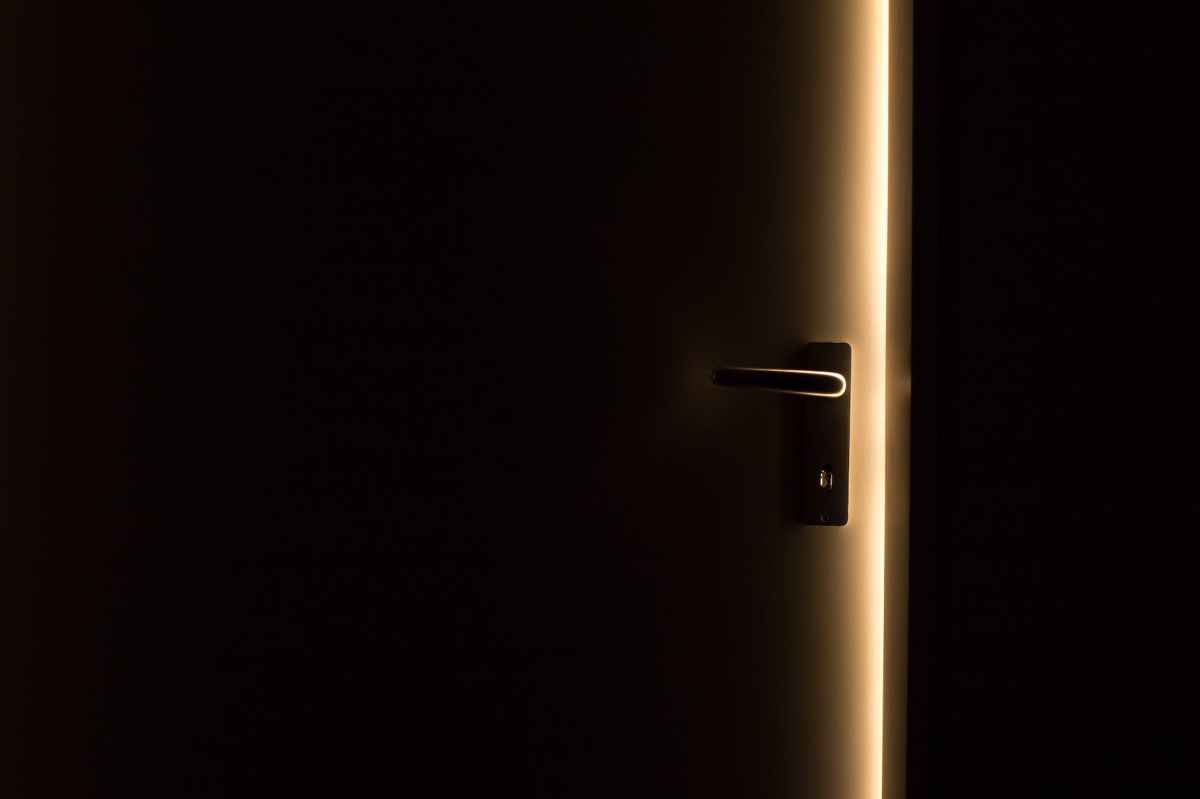I preached this sermon on Sunday, July 2, 2023 at Trinity Episcopal Church, Fort Wayne, IN. The lectionary texts cited are Genesis 22:1-14 and Matthew 10-40-42.
About a year and a half ago, a woman came to Trinity seeking some assistance. As most of you know, we are regularly visited by folks in our community who, for one reason or another, have come upon hard times and who need a little help. When they show up we try, as best we can, to assist them with the essentials—food, laundry, a bit of money to help with an emergency expense. Many of you contribute to these initiatives.
This woman was in a similar situation; she’d started a job at a fast food restaurant and wouldn’t get paid for a week or two, and needed some funds to cover her bills. But it wasn’t her request for help that stood out to me, or even her story, which had more than its share of heartbreak and hardship. What stood out was a question that she asked me—a question that nobody else who has come to the doors has ever asked me, before or since. After giving her what I could, she looked past me as if gazing down the hallway into the building, and then she said, “the people who go to this church—what do they think of people like me? Would I be welcome here?”
Would I be welcome here? She was asking, in other words, would people like me, people who embody an uncomfortable truth, people whose lives do not fit a neat and tidy narrative—would a person like that be welcome here? I’m not exaggerating when I say that it felt, in that moment, as if Christ himself was asking the question of me and of us: the people who go to this church—what do they think of me?
Now, of course I told her what a warm and welcoming community we have here at Trinity, and that she could worship with us any time, and I meant that. But the question has stayed with me ever since, perhaps because of its raw vulnerability, or perhaps because, in asking it, she was really getting to the heart of what we are supposed to be about in this house of God: true, sometimes uncomfortable hospitality.
Because it’s all too easy to say that we should love God and love our neighbor until we realize that God and that neighbor might deeply challenge us, and that loving them is going to ask something precious of us—something we were not prepared to relinquish. Our resources sometimes, yes, but also our comfort, our complacency, and our preconceived notions about the world.
We in the Episcopal church take seriously the notion, stated in today’s Gospel, that whoever welcomes the stranger welcomes the Lord himself. And we strive, as best we can, to create space for all who hunger, for all who seek, to say, “yes, you are welcome here, whoever you are, whoever you have been, whoever you are becoming. You are welcome.” And that is a gift that this community offers willingly.
But hospitality is a risky sort of gift, because it doesn’t always go according to plan. We might set out to welcome a guest with the best of intentions, with our house well in order, with the banquet arranged just so, only to discover that when those guests arrive, they demand more than we bargained for—not more of our material goods, but more of ourselves. A true, and deep, and holy hospitality is not just about opening our doors, but about opening our hearts, and our lives, to the possibility of truly seeing and thus being changed by the one who comes knocking.
When the woman at the doors asked me that question, “would I be welcome here” I have to be honest that a part of myself wondered—would she? Would she be fully, truly welcomed? Not just acknowledged with a polite smile, but embraced, in all of her complexity and pain? Are any of us? It’s a question, at least for me, without a neat and tidy answer, because, in truth, I think we can all be a bit afraid of the unfamiliar. We can all shy away from people whose lives seem so very unlike our own, especially those whose naked grief and brokenness demands an accounting of our own hidden wounds.
And yet, if I am to be hospitable, truly hospitable, then I know that I must go beyond politeness and venture into the far scarier and more uncertain landscape of true communion, where our wounds and our dreams and our stories brush up against one another, all so different on the surface, yet all so similar. It is not for the faint of heart, this type of hospitality, but it is the also the very thing for which our hearts were made.
And though you might not immediately see it, this invitation into risky hospitality is the unspoken theme of today’s dark and luminous reading from Genesis, one of the strangest and most compelling passages in all of scripture, in which Abraham must prepare an altar for his son, Isaac, to be offered, like a lamb, as a sacrifice to the inscrutable mystery of God.
It is a horrifying story. It is an inconceivable demand. And that’s good; the fact that we recoil from the story reveals our own innate tendency toward compassion.
But if we can take a step back from the emotional intensity of the narrative and consider how it fits into the broader story of Abraham’s experience of God, I think it also says something very important about this question of true, costly hospitality; of welcoming the stranger—the challenging stranger—into our midst.
Let me explain. Abraham’s story is based, in many ways, on the idea of being hospitable. You will remember (we just heard it in church a couple weeks ago) that Abraham and Sarah, who were childless in their old age, were granted as a divine blessing their son, Isaac, after offering hospitality to God, who appeared to them as three travelers seeking respite. They prepared a meal for the Lord and then they were promised a son. And if this were the whole story, if they lived happily ever after, it would be quite neat and tidy—they acted hospitably, virtuously, and they reaped the rewards of doing so.
But nothing in life is that simple, and nothing in Scripture is either. So we have this unsettling chapter today—one that hits hard for anyone who has lost someone or something very dear to them—with God coming to Abraham again and asking for something far more costly than a meal and a bit of shelter. Here, God demands Abraham’s willingness to offer up his very identity, his love, his hope. Here, on this cold and lonely mountaintop, far from his home, being hospitable to God, preparing a table for him is, for Abraham, the opposite of neat and tidy. It is earth shattering. It is heart-rending. And as he builds the altar of wood, as the wind whistles over the rocks, one can almost hear a question carried down from heaven—Abraham, what do you think of me now? Am I still welcome here? Will you hold fast to the promise, even now, even when it will seemingly cost you everything?
Now, of course, God does not actually demand Isaac’s life in the end; he desires mercy, not sacrifice, even if he has a terrifying way of showing it here. But in this story, which is less of a handbook for father-son relationships and really more like a parable, we are reminded in shocking terms that opening our homes and our hearts to God in our midst—to offer hospitality in that deep and true way, is not always a cozy get together. Sometimes it is a door thrown open to the truth, to the storm, bearing with it liberating wind and life-giving water and dreadful lightning all at once.
Sometimes being hospitable is finding the courage to stand in the threshold and to see there, in the whirlwind, the totality of life—the blessing and the curse, the beauty and the burden and the risk and the redemptive promise, and to somehow say, “yes.”
Yes, I open myself to whoever and whatever comes. Yes, I will risk caring for another, even though I know I must lose them someday. I will embrace what I do not understand. I will love past the point of calculation, I will be welcoming past the point of self-serving virtue, I will greet you, whoever you are, woman knocking at the door, God knocking at the door, and I will hear your story and I’ll tell you mine and if you ask me what the people in this church think; if you would be welcome here, I will say,
I hope so, because if you are not, then none of us is. For the love of God is costly, so very costly, but it is also fierce and free. It is all-encompassing, and there are no outsiders inside this place.
So come. Come to this table and behold the gift given abundantly—yes, a Son sacrificed upon a lonely altar, in the end, by not given by us to a angry God but given by God to a hungry humanity—given to you. Given for you. The once and eternal hospitality of God, terrifying, magnificent, transformative, and complete.
Yes, we are all welcome here.
And it will save us. And it will change us.
So brace yourself.

